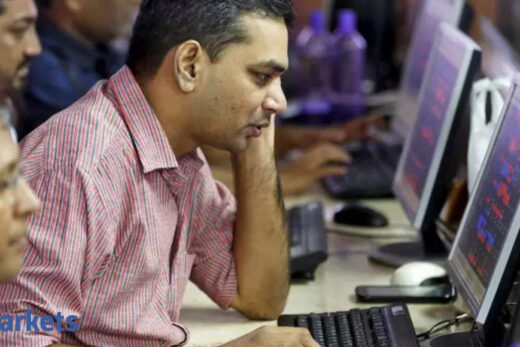The list included stocks from the auto ancillary, financials and Adani group companies.
is off 27 per cent from its 52-week high of Rs 430.25. The lender witnessed a couple of favourable developments last week.
RBI’s consultative paper on harmonisation of regulations for MFIs subsides the bank’s concerns being subjected to a maximum number of lenders or lending rate cap. Also, the Assam government’s decision to provide relief as well as incentives for MFI loans will partially address one of the key concerns of its elevated stress pool in the state.
“Bandhan Bank, with the highest market share in Assam (over 55 per cent market share with Rs 7,000 crore exposure), is naturally bound to benefit from the scheme designed in a way to retain credit culture and promote responsible repayment behavior,” ICICIdirect said.
The brokerage has a target of Rs 465 on the stock. Nomura India sees it at Rs 360 based on 2.4 times March 2023 price-to-book value.
AU Small Finance Bank at Rs 1,025 is 24 per cent off its 52-week high of Rs 1,356. Analysts said some near-term provisioning headwind notwithstanding, AU’s long-term growth prognosis remains unchanged by the Covid 2.0.
Edelweiss is assuming a conservative and gradual scale back in gross non-performing loans and an increase in restructured assets from 1.8 per cent to 2.7 per cent of loans. “A strengthened balance sheet on the back of Aavas stake sale and recent capital raising lend comfort,” it said.
Two of Adani group stocks Adani Green Energy and Adani Ports and Special Economic Zone are down 23-24 per cent from their 52-week highs. The Adani group stocks have been in the news after a report suggested that accounts of three overseas funds holding group stocks were frozen by NSDL, which the company later denied.
“Many retail investors and traders who are operating Adani group stocks individually are trapped. I hope for them that this is a temporary fall and the stocks recover, but I think they should be ready for extreme volatility in this group’s stocks,” said Sandip Sabharwal,asksandipsabharwal.com.
Two-wheeler maker Hero MotoCorp is down 20 per cent from 52-week highs. Automakers
, M&M, and Ashok Leyland and tyre maker MRF are also down 15-18 per cent from their respective one-year highs.
May was a washout period for automakers. Maruti Suzuki reported a sequential decline of 71 per cent driven by an equally sharp decline in core segments, including mini and compact and UV segments. M&M’s volumes declined 56 per cent. Hero MotoCorp suffered a sequential decline of 51 per cent, led by a sharp fall in scooters volumes. Ashok Leyland’s sales also fell 62 per cent.
“In terms of our volume forecast for FY2022, we expect some downward revision to our M&HCV numbers and we have already cut our domestic 2W industry volume growth from 15 per cent to 12 per cent on a YoY basis. We continue to remain optimistic about recovery in domestic PV and tractor segments,” Kotak said.
Reliance Securities sees recovery in auto sales from the September quarter onwards and feels issues such as semiconductors supply constraints and container unavailability may get resolved by then.
In the case of MRF, analysts said the company faced challenges in ramping up capacity and was impacted more by pandemic-led shutdowns vis a vis peers. This led to underperformance in FY21 revenue growth as competitors capitalised on MRF’s inability to serve the market, especially in TBR (truck & bus radial tyre) and PCR (passenger car radial tyre) space.
Analysts said the company may be unable to pass on the likely 10 per cent rise in raw material cost in the June quarter to consumers and are cautious on the stock.
Havells,
and are three stocks falling 18-19 per cent over their 52-week highs. Analysts are largely neutral on electrical consumer goods maker Havells as they believe the stock is priced to perfection.
“We are convinced by Havell’s strong brand recall, market share gain and high-quality earnings. However, demand headwinds due to lockdown and higher raw material cost is a concern in the near term, while given its premium valuation the risk-reward ratio is not favourable,” Geojit said in a note.
In the case of Petronet LNG, the March quarter results disappointed a bit and some earnings downgrades were also seen. Yet, brokerages are largely positive on the stock.
“We re-iterate buy as we expect volume CAGR at 9 per cent over FY21-23 on a rise in utilisation for Kochi terminal. PLNG’s high earnings visibility is positive and valuation does not factor in volume growth potential. Besides, the company has maintained a strong dividend payout of 60-70 per cent for the third consecutive year in absence of any major capex plan. We take comfort from management’s prudent capital allocation track record,” JM Financial said.
Biocon has many ‘sell’ ratings. CLSA in a May note said that the time was running out to ramp up market share in existing products while the majority of its second wave of products lack first mover advantage. “A patchy execution record, strong innovative defence strategies, and rising competitive intensity mean market share gain in biologics will only be gradual and keep the risk of further downgrades,” CLSA said.
and ZEEL are down 15-16 per cent from one-year highs. Motilal Oswal Securities believes given the promoter’s intent to increase the stake and loans given to the parent by Vedanta, potential corporate actions would be key drivers of the stock price. “High leverage and scheduled debt repayments at the parent Vedanta Resources remain an overhang,” it said.
In the case of Zee, analysts said Street views higher investments to shore up content as a negative, but they regard it as critical to capturing market shares in both TV and OTT platforms.
“Zee has scaled back future investments in SugarBox amid rising investor concerns, not to mention the new operating dynamics in the wake of uncertainty caused by the pandemic. Meanwhile, the reconstituted board instils confidence,” Edelweiss said.


